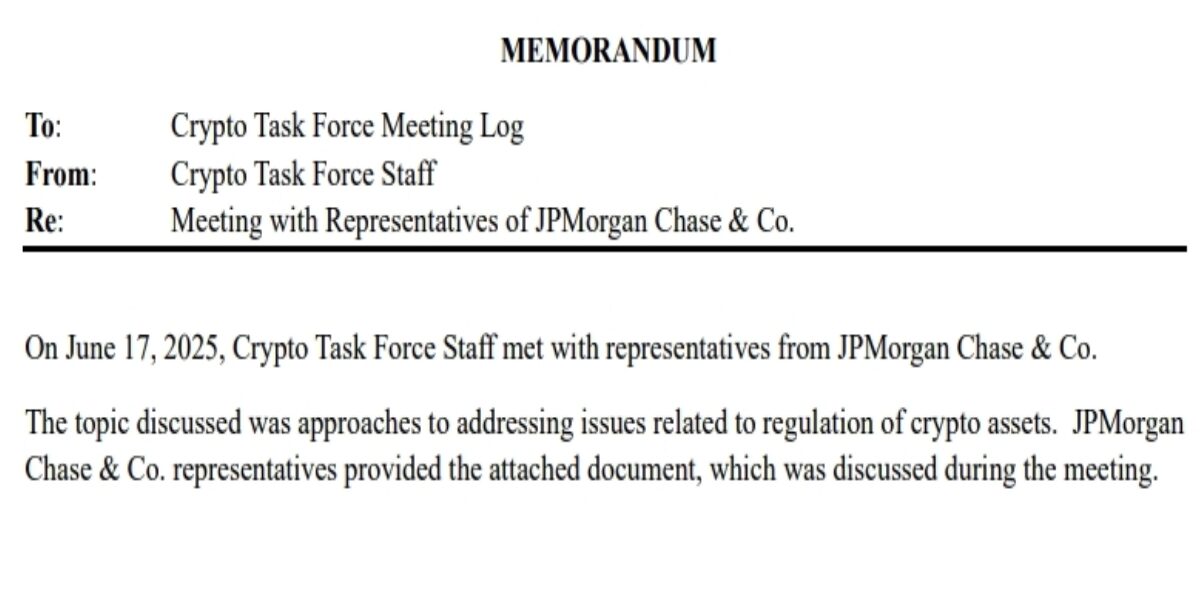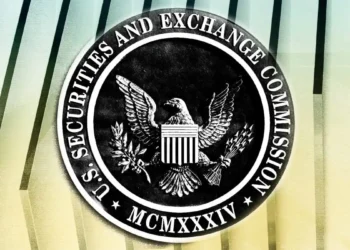Top executives from JPMorgan Chase recently met with the U.S. Securities and Exchange Commission’s Crypto Task Force to explore the evolving regulatory landscape for digital assets and assess the implications of capital markets transitioning to public blockchains.
During the meeting, JPMorgan executives discussed how blockchain integration could reshape traditional market infrastructure. They reviewed the potential impact of existing capital markets activities moving onchain, evaluating both the opportunities and risks associated with such a transformation, according to a meeting summary released by the SEC on June 17.

The dialogue also covered JPMorgan’s active participation in the digital finance ecosystem. The firm highlighted its crypto-related initiatives, particularly its blockchain-powered platform for repurchase agreements—a critical component of its “Digital Financing” and “Digital Debt Services” offerings.
In addition to sharing its current crypto strategy, JPMorgan explored how it could sharpen its competitive edge in the blockchain space, where speed, cost efficiency, and asset tokenization are redefining financial services.
Representing the bank at the meeting were Scott Lucas, JPMorgan’s Head of Markets for Digital Assets; Justin Cohen, Global Head of Equity Derivatives Development; and Aaron Iovine, Executive Director and Global Head of Digital Asset Regulatory Policy.
The meeting coincided with JPMorgan’s latest blockchain initiative—a pilot for its own deposit token, JPMD, launched on Base, the Ethereum Layer 2 network developed by Coinbase.
JPMorgan confirmed on June 17 that institutional clients using Coinbase will be able to transact with JPMD once the pilot phase concludes, which is expected to take several months. A day prior, the bank submitted a trademark application for JPMD, detailing a broad scope of services including digital asset trading, transfers, and payment processing.
Although the move sparked speculation about a potential stablecoin venture among large U.S. banks, JPMorgan emphasised that deposit tokens offer a more robust alternative for institutional use. Naveen Mallela, a key executive at Kinexys, JPMorgan’s blockchain unit, told Bloomberg that, unlike stablecoins, deposit tokens are scalable due to their full integration into the traditional banking system and their fractional reserve model.
If you want to read more news articles like this, visit DeFi Planet and follow us on Twitter, LinkedIn, Facebook, Instagram, and CoinMarketCap Community.
“Take control of your crypto portfolio with MARKETS PRO, DeFi Planet’s suite of analytics tools.”





















